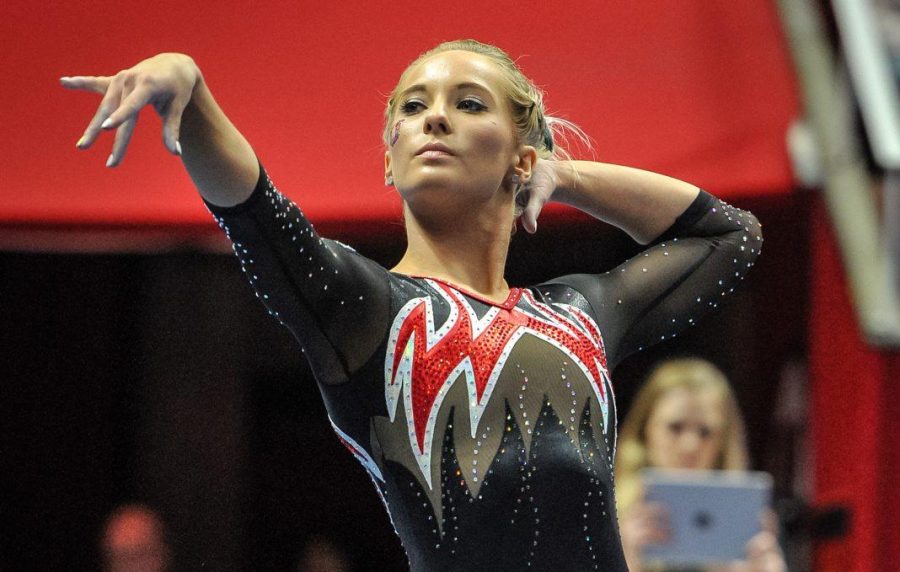With 15,000 fans packed into the Huntsman Center, cheering on the University of Utah gymnastics team, the atmosphere can be loud and exciting. At the same time though, it can be nerve-wracking for the Red Rocks. That’s where the skills and tools they’ve learned from the sports psychology staff come into play to help strengthen their mental toughness.
“In sports in general … being able to [compete] when the moment comes takes having your head in the game. You get to the collegiate level and then you are on a team that is [competing as] one of the top programs in the country — it takes a lot of mental toughness,” said co-head coach Megan Marsden. “My athletes compete week in and week out and in front of a lot of people many times. To me, they have a lot of pressure on them.”
In these times of pressure, sports psychology comes into play.
“There are tools you can use if you are able to work with our sports psychologist,” Marsden said.
Marsden believes there is a misconception about sports psychology. Some might think self-care is about laying on the couch, but it’s really about training the mind to be mentally tough. Sports psychology is about giving athletes the right tools to succeed day in and day out.
Gymnasts learn skills such as breathing techniques, visualizing their routines or simply having a code word that triggers them to focus and re-engage during stressful situations.
Practicing good mental health has benefited sophomore MyKayla Skinner throughout her life. As an elite gymnast and one of the best gymnasts in the country, Skinner knows the importance of mental toughness. Her focus, determination and constant readiness drive her.
Skinner’s mental toughness has been reinforced through countless hours of practice and competition.
“I think it’s definitely what you do in practice,” Skinner said. “What you do in practice is how you’re going to compete. … Just going through those routines over and over and over again and not thinking about ‘Oh if I mess up,’ but thinking … ‘I got this.’”
The gymnast admits that after having such a stellar freshman year, she puts even more pressure on herself, especially being the anchor on all four events.
“It’s been stressful because sometimes you might not be feeling good or just before the meet you might not be thinking what you need to be thinking to be prepared,” Skinner said. “In the elite world I [am] usually first up on bars and beam, second to last on floor and vault, so it’s definitely been a challenge for me to actually think about what I need to do being last.”
While it might be stressful, one of the biggest things Skinner is learning is to place her mind in the present moment.
“I think the most important part is just being able to go out there and have fun with it and not stress about it,” Skinner said. “Just go out there [and perform because] we’ve done these routines plenty of times.”
c.mcmanamon@dailyutahchronicle.com
@curramac22


